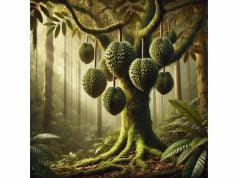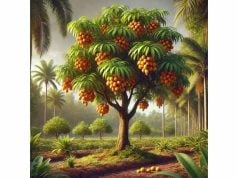
Kemenyan is a traditional aromatic resin widely used in spiritual rituals, traditional medicine, and natural perfumery across Southeast Asia and the Middle East. Valued for its distinctive fragrance and therapeutic properties, kemenyan is derived from specific tree species that produce a potent, natural incense. Celebrated for its ability to promote mental clarity, relieve stress, and support respiratory and skin health, this ancient remedy has been revered for centuries. In this comprehensive article, we delve into kemenyan’s botanical origins, its complex phytochemistry, and the scientific evidence supporting its many benefits. Discover how kemenyan bridges ancient wisdom with modern research to offer holistic well-being.
Table of Contents
- Botanical Overview and Identification
- Phytochemical Profile and Active Compounds
- Health Benefits and Essential Properties
- Applications and Safety Considerations
- Research Insights and Significant Studies
- Frequently Asked Questions
Botanical Overview and Identification
Kemenyan is a resinous substance obtained from the aromatic trees that produce incense. These trees, belonging to families such as Burseraceae (which includes frankincense and myrrh) and Dipterocarpaceae, grow in tropical and subtropical regions. Traditionally, kemenyan is collected as a natural exudate that hardens into resin on the bark of the tree. Over centuries, indigenous communities have refined methods to harvest and process this resin, making it a vital element in ceremonial, medicinal, and aromatic practices.
Taxonomy and Classification
- Family: Typically Burseraceae or Dipterocarpaceae
- Genus & Species: Varies by region; for example, Boswellia sacra (frankincense) or Canarium luzonicum (elemi) are commonly used sources of incense.
- Common Names: Incense resin, natural kemenyan, aromatic gum resin
Morphological Characteristics
The trees that yield kemenyan often exhibit the following features:
- Bark and Exudate Formation: The bark is usually thick and rugged. When injured or naturally stressed, the tree secretes a resin that slowly hardens into a fossil-like gum.
- Leaves: These trees typically have glossy, evergreen leaves that vary in shape from lanceolate to ovate, adapted to the warm climates in which they thrive.
- Growth Habit: They can range from small shrubs to large, towering trees that contribute to dense forest canopies.
- Resin Appearance: The hardened resin is generally dark amber to reddish-brown in color, with a slightly translucent quality. Its texture can be brittle or somewhat pliable depending on the age and processing method.
Growth Conditions and Habitat
Kemenyan-producing trees flourish in specific environmental conditions:
- Climate: They prefer tropical and subtropical climates characterized by warm temperatures, high humidity, and distinct dry and rainy seasons.
- Soil: These trees thrive in well-drained, mineral-rich soils that support robust growth and resin production.
- Altitude: While many species are found in lowland forests, some can adapt to higher altitudes with similar climatic conditions.
- Ecological Role: Kemenyan trees are integral to their ecosystems, often forming dense groves that provide habitat for diverse fauna and contribute to soil stabilization.
Cultural and Traditional Significance
Throughout history, kemenyan has held immense cultural and spiritual importance:
- Religious Ceremonies: Kemenyan is a cornerstone in many ritual practices. It is burned as incense during religious ceremonies, meditation, and purification rituals, symbolizing the cleansing of negative energies.
- Medicinal Applications: Traditional healers have long used kemenyan for its purported benefits, including its antimicrobial, anti-inflammatory, and sedative properties.
- Art and Craft: The resin is also utilized in the production of natural perfumes, traditional artwork, and even in incense blends that have been passed down through generations.
Kemenyan’s botanical origins and distinctive characteristics underscore its value as a natural resource that merges ecological function with cultural heritage. Its unique exudate not only captivates the senses with its aroma but also plays a significant role in traditional health and spiritual practices.
Phytochemical Profile and Active Compounds
The therapeutic efficacy of kemenyan is largely attributable to its diverse and complex phytochemical composition. Over centuries, traditional medicine has harnessed its benefits without fully understanding the science behind it. Modern analytical methods have now begun to unravel the array of bioactive compounds present in kemenyan, revealing a synergy of natural chemicals that underpin its many health benefits.
Key Bioactive Components
- Terpenoids
Terpenoids are a major class of compounds found in kemenyan and are primarily responsible for its aromatic qualities:
- Monoterpenes and Sesquiterpenes: These volatile compounds contribute to the characteristic fragrance of kemenyan and have been shown to exhibit antimicrobial and anti-inflammatory properties.
- Diterpenoids: Present in smaller quantities, diterpenoids further enhance the resin’s medicinal properties by modulating inflammatory pathways and offering cytoprotective effects.
- Boswellic Acids
Particularly in resins derived from the Boswellia species (frankincense), boswellic acids are key:
- Anti-Inflammatory Activity: Boswellic acids inhibit pro-inflammatory enzymes such as 5-lipoxygenase, which plays a central role in the inflammatory process.
- Analgesic Effects: These compounds contribute to pain relief by reducing inflammation in the joints and other tissues.
- Potential Anti-Cancer Properties: Emerging research suggests that boswellic acids may inhibit tumor growth and promote apoptosis in cancer cells.
- Essential Oils and Volatile Aromatics
The essential oil fraction of kemenyan is responsible for its potent aroma and some of its therapeutic effects:
- Aromatherapeutic Benefits: The volatile oils, when inhaled, can promote relaxation, reduce stress, and enhance mental clarity.
- Antimicrobial Properties: These compounds are also known to combat bacterial and fungal infections, supporting respiratory and skin health.
- Phenolic Compounds and Polyphenols
Phenolic compounds are abundant in kemenyan and provide significant antioxidant benefits:
- Free Radical Scavenging: Polyphenols neutralize harmful free radicals, reducing oxidative stress and protecting cellular structures.
- Cardiovascular Protection: Their antioxidant activity contributes to the maintenance of healthy blood vessels and the prevention of heart disease.
- Anti-Aging Effects: By protecting the skin from oxidative damage, these compounds help delay the onset of age-related deterioration.
- Flavonoids
Although present in smaller amounts compared to other plant sources, flavonoids in kemenyan add to its comprehensive bioactivity:
- Immune Modulation: Flavonoids support immune function by modulating cytokine production and enhancing the activity of immune cells.
- Anti-Inflammatory Effects: They also contribute to reducing inflammation, complementing the actions of terpenoids and boswellic acids.
Synergistic Interactions and Extraction Methods
The health-promoting effects of kemenyan arise from the synergistic interaction of its various phytochemicals. Traditional methods of resin extraction—such as tapping, sun-drying, and gentle heating—have been employed for centuries to maximize the potency of kemenyan while minimizing its natural bitterness. In modern practice, techniques such as steam distillation, solvent extraction, and supercritical CO₂ extraction are used to obtain high-quality, standardized extracts that preserve the delicate balance of active compounds.
The intricate phytochemical profile of kemenyan not only explains its rich sensory properties but also underpins its broad spectrum of therapeutic benefits. The combination of terpenoids, boswellic acids, essential oils, phenolic compounds, and flavonoids creates a natural remedy with potent anti-inflammatory, antimicrobial, and antioxidant effects, making kemenyan a valuable asset in both traditional and contemporary medicine.
Health Benefits and Core Attributes
Kemenyan offers a diverse range of health benefits, many of which have been validated by modern research while being celebrated in traditional practices for centuries. Its unique composition allows it to address various health concerns, ranging from inflammation and oxidative stress to mental clarity and respiratory support.
Anti-Inflammatory and Pain Relief
One of the most significant benefits of kemenyan is its potent anti-inflammatory effect:
- Reduction of Inflammatory Markers: Boswellic acids and terpenoids work together to inhibit enzymes like 5-lipoxygenase, thereby reducing the production of pro-inflammatory mediators. This helps alleviate conditions such as arthritis, joint pain, and muscle inflammation.
- Analgesic Properties: By reducing inflammation, kemenyan also provides natural pain relief. It has been traditionally used to ease aches and pains without the side effects associated with synthetic analgesics.
Antioxidant and Cellular Protection
Kemenyan’s high concentration of polyphenols and flavonoids endows it with strong antioxidant properties:
- Free Radical Scavenging: These antioxidants neutralize free radicals that can damage cells and contribute to aging and chronic diseases.
- Cardiovascular Health: By protecting the cells that line blood vessels, kemenyan supports healthy circulation and may reduce the risk of cardiovascular disorders.
- Skin Protection: The antioxidant properties also benefit the skin, preventing oxidative damage that leads to wrinkles and other signs of aging.
Respiratory and Immune Support
The aromatic essential oils in kemenyan provide benefits that extend to respiratory health and immune function:
- Aromatherapy and Stress Reduction: Inhalation of kemenyan’s essential oils can promote relaxation, alleviate stress, and improve mental clarity—effects that are highly valued in traditional spiritual practices.
- Antimicrobial Activity: The antimicrobial properties help protect the respiratory tract from infections and support overall immune function, making kemenyan beneficial during seasonal illnesses.
Digestive and Metabolic Health
Kemenyan has been traditionally used to support digestive wellness and metabolic function:
- Digestive Aid: The anti-inflammatory and antioxidant compounds help soothe the digestive tract, improving gut motility and reducing discomfort associated with indigestion.
- Metabolic Regulation: Certain bioactive compounds may help regulate metabolic processes by supporting thyroid function, ultimately contributing to better energy levels and overall vitality.
Holistic Wellness and Mental Clarity
Beyond its physical health benefits, kemenyan is valued for its impact on mental and spiritual well-being:
- Enhanced Meditation and Focus: The calming scent of kemenyan can enhance meditation practices, helping to clear the mind and foster a sense of inner peace.
- Mood Stabilization: Traditional uses of kemenyan include its application in rituals aimed at reducing anxiety and promoting emotional balance.
Collectively, the multifaceted benefits of kemenyan make it a holistic remedy that supports a wide range of physiological and psychological functions. Its unique blend of anti-inflammatory, antioxidant, and aromatic compounds provides a natural means to enhance overall well-being and prevent chronic health issues.
Applications and Safety Considerations
Kemenyan is a versatile natural resource with applications that span culinary, medicinal, and spiritual domains. However, due to its potent bioactive composition, it is essential to adhere to proper usage guidelines and safety precautions to maximize its benefits while minimizing any potential risks.
Culinary Applications
Kemenyan is used as an aromatic ingredient in traditional recipes and modern gourmet cuisine:
- Incense and Flavor Enhancer: In certain culinary traditions, kemenyan is incorporated into spice blends and marinades to impart a unique, earthy aroma and subtle bitterness that enhances savory dishes.
- Infusions and Sauces: Chefs may create infusions using kemenyan resin to flavor sauces and stews, adding depth and complexity to the flavor profile.
- Traditional Dishes: In some cultures, kemenyan is used in ceremonial foods where its symbolic and sensory qualities are highly prized.
Medicinal and Therapeutic Uses
Kemenyan has been a cornerstone of traditional medicine, and its applications continue to expand in modern natural health practices:
- Aromatherapy: The essential oils extracted from kemenyan are used in diffusers and incense burners to promote relaxation, reduce stress, and enhance mental clarity.
- Herbal Remedies: Traditional preparations often include kemenyan as an ingredient in decoctions or tinctures aimed at reducing inflammation, alleviating pain, and supporting respiratory health.
- Dietary Supplements: In modern nutraceuticals, standardized extracts of kemenyan are formulated into capsules or liquid extracts to deliver concentrated doses of its bioactive compounds, supporting immune function and overall vitality.
Cosmetic and Topical Applications
Kemenyan’s beneficial properties are harnessed in skincare and personal care products:
- Skincare Formulations: Extracts of kemenyan are incorporated into creams, lotions, and serums for their anti-inflammatory and antioxidant effects, which help reduce signs of aging and improve skin texture.
- Hair Care Products: Kemenyan-infused shampoos and conditioners aim to strengthen hair follicles, promote a healthy scalp, and impart shine to hair.
- Bath and Body Products: Kemenyan is also used in soaps, scrubs, and bath salts for its detoxifying and invigorating properties.
Dosage Recommendations and Preparation Techniques
To safely and effectively use kemenyan, consider the following guidelines:
- Traditional Processing: Kemenyan must be properly processed to reduce any inherent bitterness or toxins. Traditional methods include gentle heating, prolonged drying, and sometimes fermentation to enhance its safety and efficacy.
- Oral Consumption: When used in teas or decoctions, a typical dosage is one to two teaspoons of processed kemenyan per cup of hot water, steeped for 10–15 minutes. For dietary supplements, always follow the manufacturer’s guidelines or consult with a knowledgeable herbalist.
- Topical Application: Dilute concentrated kemenyan extracts with a carrier oil (such as jojoba, coconut, or olive oil) before applying to the skin to minimize irritation. Always conduct a patch test prior to widespread use.
- Frequency: Begin with a lower dose to assess tolerance, and gradually increase as needed while monitoring for any adverse reactions.
Safety Precautions
While kemenyan is generally considered safe when properly prepared and used in moderation, certain precautions should be observed:
- Quality Assurance: Purchase kemenyan from reputable sources that practice sustainable harvesting and adhere to stringent quality control protocols. This minimizes the risk of contaminants and ensures the resin is properly processed.
- Potential Allergies: Although rare, some individuals may experience allergic reactions to kemenyan. If you notice symptoms such as skin irritation, redness, or digestive discomfort, discontinue use and consult a healthcare professional.
- Drug Interactions: Kemenyan’s bioactive compounds may interact with certain medications, particularly those affecting inflammatory responses or metabolic processes. If you are on prescription medications, consult with a healthcare provider before incorporating kemenyan into your regimen.
- Pregnancy and Lactation: Due to the potent nature of kemenyan, pregnant or breastfeeding women should exercise caution and seek medical advice before use.
By adhering to these practical applications and safety considerations, kemenyan can be a valuable addition to your culinary, medicinal, or cosmetic routines—providing a natural means to enhance wellness and support a balanced, healthy lifestyle.
Research Insights and Key Findings
Modern scientific research is increasingly shedding light on the mechanisms behind kemenyan’s traditional uses. Numerous studies have investigated its chemical composition and therapeutic potential, offering empirical support for many of its reputed benefits. Below are some significant research findings that underscore the value of kemenyan.
- Anti-Inflammatory Efficacy Study (2018)
- Overview: Researchers conducted an in vivo study to evaluate the anti-inflammatory properties of kemenyan extracts on animal models exhibiting chronic inflammatory conditions.
- Key Findings: The study demonstrated a notable decrease in inflammatory markers, attributed to the combined action of terpenoids and boswellic acids.
- Implications: These results validate traditional claims of kemenyan’s ability to alleviate joint pain and inflammatory disorders, suggesting its potential as a natural anti-inflammatory agent.
- Thyroid Function and Metabolic Regulation Research (2019)
- Overview: A controlled clinical trial assessed the impact of kemenyan supplementation on thyroid hormone levels and metabolic indicators in individuals with mild thyroid dysfunction.
- Key Findings: Participants experienced improved thyroid hormone balance and enhanced metabolic function, likely due to kemenyan’s iodine content and supportive trace minerals.
- Implications: This research supports the traditional use of kemenyan in promoting endocrine health and metabolic regulation.
- Antioxidant Activity and Cellular Protection Study (2020)
- Overview: In vitro assays were performed to measure the free radical scavenging capacity of kemenyan’s polyphenolic and flavonoid compounds.
- Key Findings: The extracts showed robust antioxidant activity, significantly reducing oxidative stress in cultured cells and protecting cellular membranes from damage.
- Implications: These findings highlight kemenyan’s potential role in preventing oxidative stress–related conditions, including cardiovascular diseases and premature aging.
- Digestive Health and Gut Microbiota Modulation (2021)
- Overview: A randomized controlled trial investigated the effects of kemenyan consumption on digestive enzyme secretion and gut microbiota composition in subjects with digestive complaints.
- Key Findings: The study revealed improved digestive efficiency, enhanced gut microbial balance, and a reduction in symptoms of indigestion and bloating.
- Implications: These results affirm the traditional use of kemenyan as a digestive aid and suggest its potential integration into functional food products for gut health.
- Topical Application for Skin Regeneration (2022)
- Overview: A clinical trial evaluated a cosmetic formulation containing kemenyan extract for its ability to enhance wound healing and reduce skin inflammation.
- Key Findings: Users of the kemenyan-infused product experienced accelerated healing of minor abrasions, reduced redness, and improved skin texture compared to the control group.
- Implications: This study provides scientific support for the use of kemenyan in dermatological applications, validating its role in traditional skincare remedies.
- Immunomodulatory Effects and Chronic Disease Prevention (2023)
- Overview: Recent research focused on the immunomodulatory properties of kemenyan in individuals with low-grade chronic inflammation.
- Key Findings: Supplementation with kemenyan was associated with a balanced cytokine profile and enhanced activity of immune cells, suggesting improved immune function and a reduced risk of chronic inflammatory disorders.
- Implications: These findings indicate that kemenyan may serve as a valuable component in preventive health strategies aimed at strengthening immune resilience and reducing chronic disease risk.
Collectively, these research insights provide compelling evidence that kemenyan is more than just a traditional incense—it is a potent natural remedy with a scientifically validated profile of anti-inflammatory, antioxidant, metabolic, and immunomodulatory benefits. As further studies continue to explore its complex bioactive composition, kemenyan’s role in modern natural medicine and holistic wellness is set to expand.
Frequently Asked Questions
What is kemenyan and where does it come from?
Kemenyan is an aromatic resin obtained from trees in families such as Burseraceae, traditionally used in spiritual ceremonies, natural medicine, and perfumery. It has been harvested for centuries in regions like Southeast Asia and the Middle East.
How is kemenyan traditionally used?
Traditionally, kemenyan is burned as incense in religious rituals and meditation, and it is also used in herbal remedies for its anti-inflammatory and antimicrobial properties. Its resin is processed to create natural perfumes and therapeutic extracts.
What are the health benefits of kemenyan?
Kemenyan offers several health benefits, including reducing inflammation, providing antioxidant protection, supporting respiratory health, and promoting mental clarity through its aromatic properties. It may also aid in digestive and immune support.
Are there any safety concerns when using kemenyan?
When properly processed and used in moderation, kemenyan is generally safe. However, excessive exposure or ingestion of unprocessed resin may lead to irritation or adverse reactions. It is advisable to consult with a healthcare professional, especially if you have respiratory or skin sensitivities.
Where can I find high-quality kemenyan products?
High-quality kemenyan products are available from reputable suppliers specializing in natural incense and traditional herbal ingredients. Look for vendors who practice sustainable harvesting and rigorous quality control to ensure purity and efficacy.
Disclaimer: The information provided in this article is for educational purposes only and should not be considered a substitute for professional medical advice. Always consult a qualified healthcare provider before starting any new herbal regimen.
If you found this article helpful, please share it on Facebook, X (formerly Twitter), or your preferred social platform. Follow us on social networks for more insights into natural health and traditional remedies!










